
Novodevichy Cemetery is a cemetery in Moscow. It lies next to the southern wall of the 16th-century Novodevichy Convent, which is the city's third most popular tourist site.
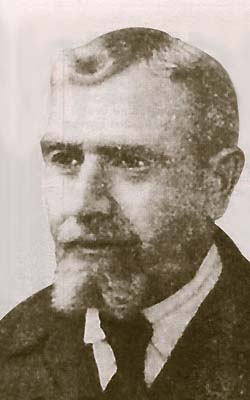
Aleksandr Alekseevich Khanzhonkov was a pioneering Russian cinema entrepreneur, film director and screenwriter. He is known for producing Defence of Sevastopol, Russia's first feature film, as well as Ladislas Starevich's ground-breaking stop motion animation. Most of his career was in Russian Empire. During 1923-1926 he worked in the Soviet Union, where his career ended with a financial scandal, however his past achievements earned him a personal pension and an apartment from the state.
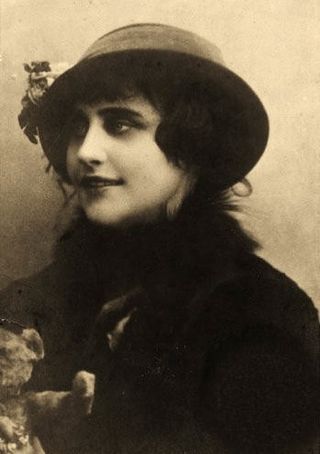
Vera Vasilyevna Kholodnaya was an actress of Russian Empire cinema. She was the first star of Imperial Russian silent cinema. Only five of her films still exist, and the total number she acted in is unknown, with speculation ranging from 50 to 100.

Ivan Ilyich Mozzhukhin, usually billed using the French transliteration Ivan Mosjoukine, was a Russian silent film actor.

Yevgeni Franzevich Bauer was a Russian film director of silent films, a theatre artist and a screenwriter. His work had a great influence on the aesthetics of Russian cinematography at the beginning of the 20th century.

Vera Alexeyevna Karalli was a Russian ballet dancer, choreographer and silent film actress during the early years of the 20th century.

Pyotr Ivanovich Chardynin was a Russian and Soviet film director, screenwriter and actor. One of the pioneers of the film industry in the Russian Empire, Chardynin directed over a hundred silent films during his career.
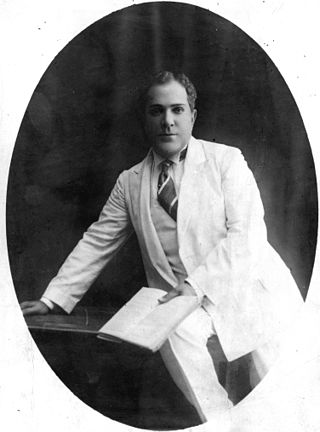
Pyotr Ivanovich Slovtsov was a famous Russian tenor.
Zlata Nikolaevna Bizova was a Russian Soviet realist painter and graphic artist, who lived and worked in Saint Petersburg. She was a member of the Saint Petersburg Union of Artists and is regarded as one of representatives of the Leningrad school of painting.
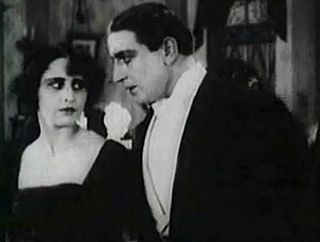
Ossip Iliych Runitsch was a Russian Empire silent film actor, producer and stage director.
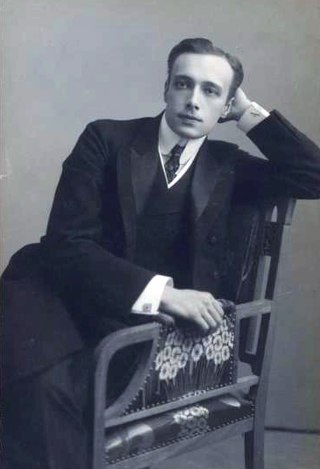
Vladimir Vasilyevich Maksimov was a stage and silent film actor in the Russian Empire and later the Soviet Union.
The year 1960 was marked by many events that left an imprint on the history of Soviet and Russian Fine Arts.

Be Silent, My Sorrow, Be Silent or Still, Sadness, Still is a 1918 Soviet film directed by Pyotr Chardynin, and starring Vera Kholodnaya, Ossip Runitsch, Vitold Polonsky and Vladimir Maksimov. The film is in two parts, but only the first part survives.
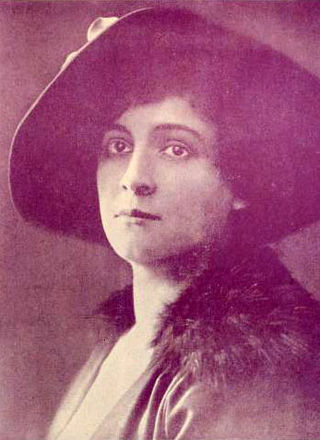
Natalya Andrianovna Lisenko, also known as Nathalie Lissenko, was a Russian actress who was active during the silent era.

A Slave of Love is a 1976 Soviet romantic comedy-drama film directed by Nikita Mikhalkov and written by Friedrich Gorenstein and Andrey Konchalovskiy. It stars Elena Solovey, Rodion Nakhapetov and Aleksandr Kalyagin. The film is about a silent film actress, Olga Voznesenskaya, whose films are so admired by the revolutionaries that they risk capture to see her on the screen. The character of Olga was inspired by Vera Kholodnaya.

People's Artist of the RSFSR was an honorary title granted to Soviet Union artists, including theatre and film directors, actors, choreographers, music performers, and orchestra conductors, who had outstanding achievements in the arts, and who lived in the Russian Soviet Federative Socialist Republic (RSFSR). This title was one rank below Honored Artist of the RSFSR and one above People's Artist of the USSR.
Mirages is a 1915 short film directed by Pyotr Chardynin.
A Life for a Life is a 1916 drama film directed by Yevgeni Bauer.

By the Fireplace is a 1917 Russian drama film directed by Pyotr Chardynin.














